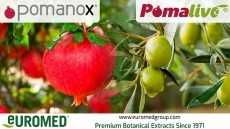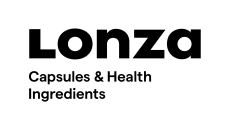EFSA criticised for 'flawed' botanical methods
(EFSA) working group over the "medicinal approach" being favoured
for regulating botanical supplements.
EFSA has been preparing draft lists of botanicals (whole plant forms) and botanical preparations (plant extracts and isolates) that may present toxicity issues.
However it has stressed the list is not intended to ban herbs from foods and supplements.
Despite its 'assessment only' assurance, groups such as the European Botanical Forum (EBF), the European Federation of Associations of Health Product Manufacturers (EHPM) and the European Responsible Nutrition Alliance (ERNA) are concerned about the list's potentially restricitve ramifications.
"The EBF submitted 25 pages of comments to the EFSA via their website," EBF secretary Patrick Coppens told NutraIngredients.com.
"As this is a very complex issue both from a technical and from a legal perspective, our experts took quite some time to provide detailed comments and we hope EFSA will take these on board."
EBF said it was encouraged EFSA had called for public consultation on the matter via its working group, but remained concerned "flawed" medicinal principles would be inappropriately - and potentially destructively - applied to the European Union 27-member state herbal products market.
"Our main criticism is that the EFSA working group has copied provisions from medicinal law and used medicinal law elements as determinants to decide upon safety for the use of botanicals in food," Coppens said.
"It is as if they consider that botanicals in food supplements today are not regulated at all, whereas the whole food legal framework applies adequate quality assurance measures to provide safe products to the consumer.
Their approach is flawed."
He said EBF sought a meeting with EFSA to further discuss the issues.
An EFSA spokesperson woulds not comment on this but said it hoped to update its guidance document by the end of April.
She said a final opinion was likely in mid-2009.
Quality versus safety While EFSA does not pass regulations - it acts only as a risk assessor - its assessments are rarely contravened by the European Commission, so industry is obviously keen that EFSA takes onboard its position as it goes about its risk assessment procedures.
EFSA emphasised its assessment role.
"EFSA is not establishing any list of botanicals that should be banned," a spokesperson told NutraIngredients.com recently.
"EFSA's scientific committee is developing two compendia listing botanicals and botanical preparations that have been used in food and are known to contain undesirable substances.
There is no judgement on whether these botanicals are safe or unsafe for food use.
These botanicals contain some compounds that deserve special attention when looking at the safety aspects."
Many of the herbs mentioned are herbal extracts used almost exclusively in medicinal products and not foods and supplements, Coppens said, but there are others such as Echinacea and ginkgo biloba that have also been listed.
He said EFSA's methodology was confused in that it was mixing quality (efficacy) issues with safety issues.
"We are surprised by this medical approach when you consider there is a legal apparatus in place in the Food Supplements Directive that could be applied in this area."
He added: "It seems many of the working group members are schooled in the pharma-based European Medicines Agency (EMEA) approach but they should know better because it has been shown time and time again that trying to transpose medical law onto food law does not work.
That was why the Traditional Herbal Medicinal Products Directive and Food Supplements Directive were enacted in the first place."
Herbal liberalists will be buoyed by a European Court of Justice decision last year that ruled against a German government attempt to classify garlic supplements as a medicine.
The ECJ said the "intended use" was generally not medicinal and therefore said the supplements should be classified under food law.
Food supplements v medicines Definition of food supplement (Directive 2002/46/EEC): "Foodstuffs the purpose of which is to supplement the normal diet and which are concentrated sources of nutrients or other substances with a nutritional or physiological effect, alone or in combination, marketed in dose form, namely forms such as capsules, pastilles, tablets, pills and other similar forms, sachets of powder, ampoules of liquids, drop-dispensing bottles, and other similar forms of liquids and powders designed to be taken in measured small unit quantities."
Definition of medicinal product (Directive 2001/83, as amended by Directive 2004/27): "Any substance or combination of substance presented as having properties for treating or preventing disease in human beings; Or: Any substance or combination of substances which may be used in or administered to human beings either with a view to restoring, correcting or modifying physiological functions by exerting a pharmacological, immunological or metabolic action, or to making a medical diagnosis."
This story has been amended from the original (published: 10/03/08) as it incorrectly implied EFSA was constructing negative lists for botanicals and botanical preparations.
We apologise for any inconvenience caused.











